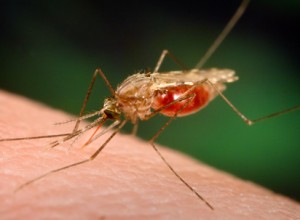Ghana achieved reduction in malaria parasite levels – NMCP
 Dr. Keziah Malm, the Programme Manager for the National Malaria Control Programme (NMCP), says Ghana has achieved a significant reduction in malaria parasite levels, especially in pregnant women and children under five years.
Dr. Keziah Malm, the Programme Manager for the National Malaria Control Programme (NMCP), says Ghana has achieved a significant reduction in malaria parasite levels, especially in pregnant women and children under five years.
She said available statistics for instance showed that the national parasitemia prevalence among children under five years of age decreased from 27.5 to 20.6 per cents respectively between 2012 and 2016.
She attributed the success to the active implementation of various interventions, key among them being the NMCP’s mass Insecticide Treated Nets (ITN) distribution.
The distribution of the ITN, she said, was done through child health and antenatal clinics respectively, as well as the Ghana Education Service’s School Health Education Programme (GES/SHEP), which targeted pupils in basic two and six.
Currently, Ghana can boast of a 100 per cent ITN nationwide coverage through the mass and continuous distribution channels, which has significantly increased access to these nets, she said.
Dr. Malm, however, stated that despite these gains, a gap remained between ITN access and use, and called for sustained collaboration among key partners in Ghana’s malaria control programme, to address the problem.
Dr. Malm was speaking at a conference in Accra, to discuss the lessons learnt from the implementation of the five-year Vector Works project 2014 to 2019, which is a global malaria prevention project funded by the President’s Malaria Initiative (PMI), through the US Agency for International Development (USAID).
She acknowledged the tremendous role of the Vector Works project in increasing the intensity and effectiveness of ITN delivery through continuous distribution channels, ensuring the promotion of sustained ownership and appropriate use and care of the nets through effective mobilization, and Social and Behaviour Change Communication (SBCC).
Dr. Malm further stated that the country could also boast of an updated electronic District Health Information Management System (DHIMS), which has greatly improved malaria data quality, timely reporting, and completeness.
She said although the Vector Works Project in Ghana ends this year, the numerous lessons learnt, must be shared among stakeholders for use in other sectors as well.
Mr. Sylvester Segbeya, the Chief of Party for the Vector Works project commended the NMCP, the various management teams, GES/SHEP Coordinators, US Peace Corps volunteers and Ghana Health Service Staff for their hard work and achievements.
Mrs. Marvie C. Eshun, the Regional SHEP Coordinator, said the ITN and SBCC at primary schools had led to an improvement in student’s health and promoted malaria prevention, creating advocacy champions out of the children for community and household education on the benefit and proper use of the nets.
She, however, complained about the late release of the Education Management Information System class enrolment data, data quality issues and funding.
Mrs. Emma Hammond, also with the SHEP, further complained about the poor documentation problems and lack of effective health facility, supportive supervision, staff attrition rate and inadequate sharing of knowledge on ITN among health facility teams and inadequate transportation networks for the transfer of the nets from the stores to the various destinations.
Dr. George Amofa, a Consultant and Chairman of the conference noted that although Ghana had worked hard through the SBCC, the efforts had not yielded the expected change especially in school children, who though had the nets, but still failed to sleep under them.
He urged the NMCP and its partners to address the challenges and complains of users regarding the use of the ITN, especially the heat factor, in order to close the gap between access and usage.
Source: GNA
